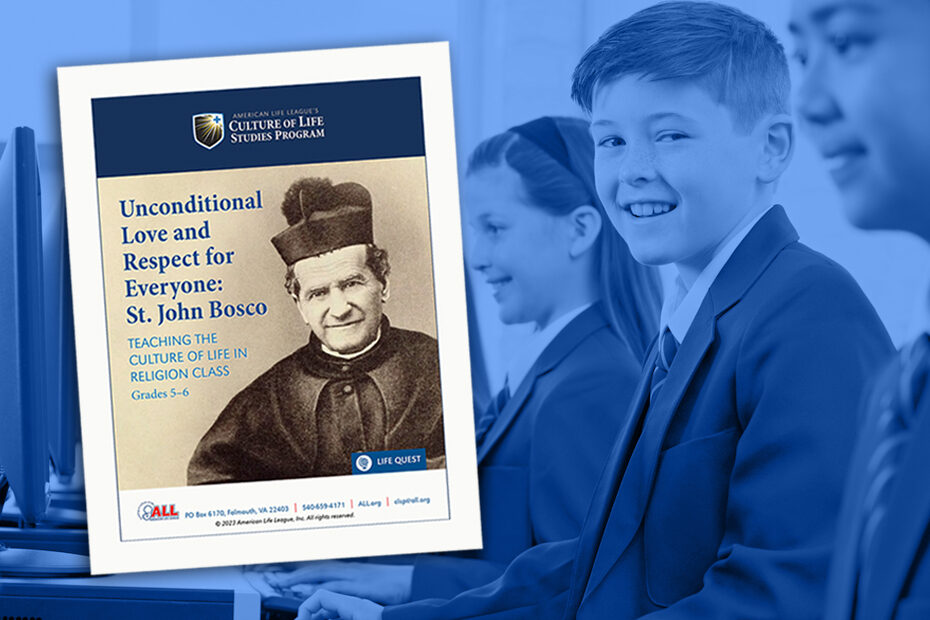By Susan Ciancio
“You do you” is a phrase all too common today. On the surface, it may seem like an innocuous idea: People should be “free” to do what they want and pursue their goals and dreams. That’s great. And it’s true. God gave us free will, and though we must use it judiciously, we are free to choose how to live our lives.
But “you do you” also has an insidious side, as for many people it has become a dismissive way of life—a way to tell others to do whatever they want, as long as their actions don’t affect anyone else. It seems like just a new way to say “I don’t care what you do as long as you’re not bothering me.”
And therein lies the fundamental flaw. If we fail to care about a person’s actions until they affect us, we fail to care about that actual person.
For instance, a person who chooses to live on the street, destroy his body with drugs or alcohol, or a person who chooses to live as the opposite sex may not be actively or deliberately hurting anyone outside of himself with his actions, but at the very least, he is most certainly hurting himself. Our love for people must begin with each individual.
Further, “you do you” goes against God’s command to love others as He has loved us. In the Gospel of John, Jesus said, “This is my commandment: love one another as I love you.” We fail to love one another if we allow people to do things that harm themselves. Therefore, “you do you” is born of hatred, not love. Love is wanting what is best for the other person. If we don’t want what’s best for someone, in essence we are telling them that they don’t matter. At best this is apathy. At worst, it’s hatred. Either way, this absence of love serves only to help damage the psychological, physical, and moral health of our fellow human beings.
So how do we combat the “you do you” mentality?
We combat it with love and compassion. And only through good examples—such as those given to us by the saints—can we learn to act out of love for our brothers and sisters in Christ.
Let’s look at the life of one saint in particular—a saint who was not afraid to stand up for the forgotten and the unwanted and who understood the importance of teaching people that their actions have consequences, even if only to themselves.
St. John Bosco was born to a poor family in Turin, Italy, in 1815. From the time he was small, he longed to become a priest. When he was young, a traveling circus went through his town, and John was enamored by their feats. He taught himself to juggle, to walk on a tightrope, and much more, and he would then perform these tricks for his friends and the other boys in town. His admittance fee to watch? One rosary. Afterward, he would explain the Gospel or discuss some aspect of Catholicism.
When John grew up, he became a priest and served the poor and often homeless boys of Turin. Not only did he teach them catechism lessons, but he taught them practical knowledge so they could then go and build good lives for themselves. He soon had so many boys coming to listen to him and learn from him that he opened a school and a home for them.
He eventually founded the Congregation of St. Francis de Sales, also known as the Salesians of Don Bosco, and today there are nearly 16,000 members who serve others throughout the world.
St. John Bosco could have looked at these ragged boys—some of whom were in gangs, some of whom were homeless, and many who just wandered aimlessly through life—and said “you do you” and walked away from them. Instead, he took it upon himself to teach them, to shelter them, to love them, and to help them learn to love themselves.
St. John Bosco was a leader, and his example led others to Christ. Never would he have told those boys “you do you” and dismissed them to carry on with their sinful ways. He cared too much for them. He understood that a society that only cares about whether a person’s actions affect anyone else devolves into a loveless and chaotic society.
As we look around our world today, let us recognize that we are all called to care for others and to treat them as St. John Bosco did. Let us become leaders, let us teach the catechism, and let us love enough to help others learn to love themselves. This is what true love for our fellow human beings means, and it’s the polar opposite of “you do you.”
The Culture of Life Studies Program has created a new lesson on St. John Bosco for middle schoolers. You can find it at shop.all.org/collections/culture-of-life-studies-program/products/saint-john-bosco-download.
This article first appeared in Catholic 365 at catholic365.com/article/30239/the-fundamental-flaw-in-the-you-do-you-mentality.html.
